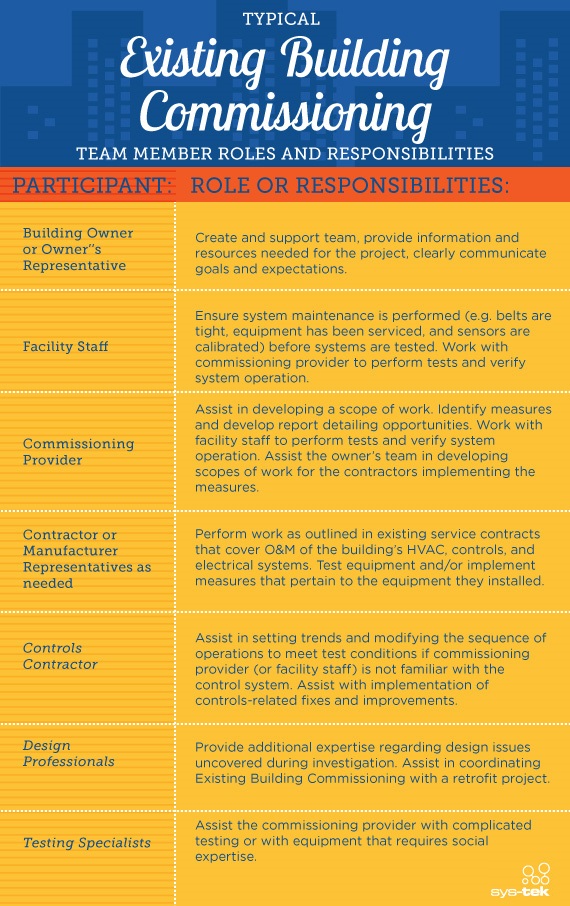Why perform new building commissioning?
Sep 05, 2013
If you’re anticipating the construction of a brand new building, or the process is already underway, is it worth the investment to pay someone else for new building commissioning? Studies show, the answer is “yes.” Engaging the services of an independent commissioning agent will bring a fresh set of eyes, brains and expectations to the construction project. A study of 60 commissioned new buildings by Lawrence Berkeley National Laboratory revealed that more than half of new buildings had temperature control issues, and 15% were even missing equipment that had been specified and paid for.
 It’s likely that the attention of contractors is fragmented throughout the complex during the construction process. They are focused on everything from plumbing to electrical, as well as overseeing subcontractors. Building commissioning and agents, however, are free to focus exclusively on ensuring that systems are appropriately designed and installed, tested for functionality, and capable of performing as designed.
It’s likely that the attention of contractors is fragmented throughout the complex during the construction process. They are focused on everything from plumbing to electrical, as well as overseeing subcontractors. Building commissioning and agents, however, are free to focus exclusively on ensuring that systems are appropriately designed and installed, tested for functionality, and capable of performing as designed.
Ideally, commissioning should begin before the project design is even completed. This gives commissioning agents a chance to contribute to design specifications and ask important questions before anything is set in stone. The commissioning process lasts beyond the building’s completion, assisting new occupants in fine tuning systems and making certain that all necessary training has been completed to the client’s satisfaction.
There are a wide variety of benefits to commissioning. These range from better systems performance and quicker correction of initial problems to smoother operations and longer life expectancy for systems equipment. New building occupants receive more complete understanding of system functions and expectations, and maintenance staff receive complete systems manuals and answers to all their questions.
This fine-tuning of a new facility usually pays for itself within the first year of operation, making new building commissioning a worthwhile investment.







